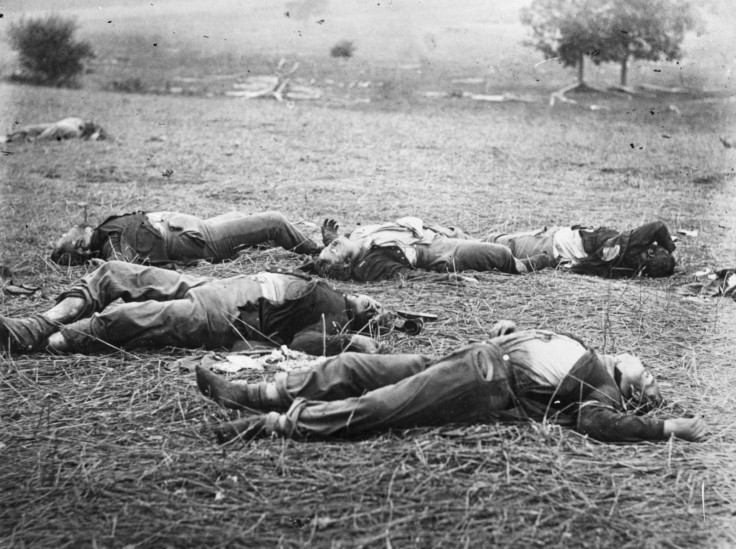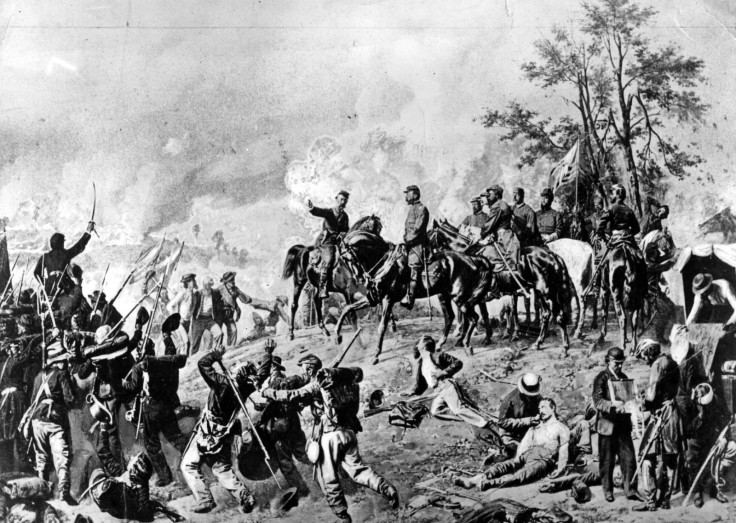'Sickening' Smell of American Civil War Described by Battle of Gettysburg Nurse
Book describes what the US Civil War smelt like to 23-year-old nurse

The stench of the US Civil War has been described by a nurse who served at the Battle of Gettysburg in 1863.
Cornelia Hancock, who was 23 at the time, wrote to her parents describing her experience of war, Slate reports.
Published in a new book by Mark Smith, professor of history at the University of South Carolina, the young nurse wrote: "A sickening, overpowering, awful stench announced the presence of the unburied dead upon which the July sun was mercilessly shining and at every step the air grew heavier and fouler until it seemed to possess a palpable horrible density that could be seen and felt and cut with a knife."
According to Smith, Hancock was so overcome by the smell of the dead, she believed it was capable of killing wounded men who lay amongst the dead, until they could be reached by doctors and nurses.

The Battle of Gettysburg took place between 1 and 3 July in and around the town of Gettysburg in Pennsylvania. It was the bloodiest battle of the whole Civil War, leaving more than 7,000 dead and 46,000 injured.
Historians point to the battle as one of the turning points in the war, with Major General George Meade stopping the Confederate Army from invading the north.
Smith's book – The Smell of Battle, The Taste of Siege: A Sensory History of the Civil War – aims to show how the historical record of war cannot provide the sensual experience – the smells, tastes, sounds and sights.
Speaking to Slate, he said: "This war was a war about some of the greatest and most noble ideals in American history. This was about freedom, questions of national identity, questions of sovereignty, questions of personal liberty. And I'm not denying all of that… Underwriting all of those ideals, we have a very gritty, deeply unpleasant human experience. And that human experience can be best excavated by an attention to the sensory experiences of war."
© Copyright IBTimes 2025. All rights reserved.





















